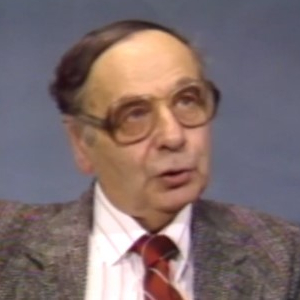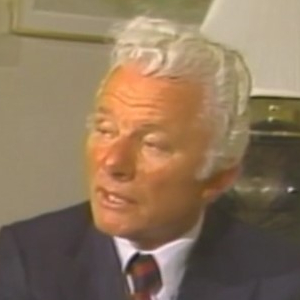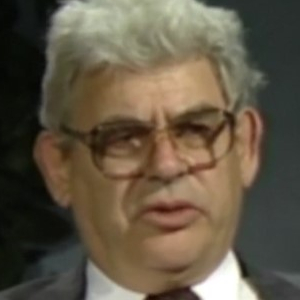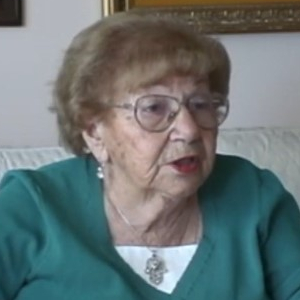Freda Schipper
Freda remembers when a gun was pointed at her mother. Upon warning her mother to run, the gun was pointed and fired at her.
Freda Schipper (nee Perelmuter) was born in Horodło, Poland on January 15, 1925 to Chaya and Nuta Perelmuter. She had three brothers: Ezekiel, Yosef, and Levi, and one sister: Sura. Freda’s family was Orthodox, and she attended Polish school during the day followed by Yiddish and Hebrew classes after school. Her family was well respected in their community, especially her grandmother Tzizel Zawidowicz.
In 1939 Freda and her family were forced to move into a ghetto. She was forced to work in the gardens and fields at the German headquarters. During a roundup in 1942, Freda was separated from her mother and taken to a forced labor camp in Horodło. She was then forced to do agricultural work on an estate in Lublin, Poland. Freda worked on the estate until October of 1943. During this time a civilian named Mateusz Budnveski brought Freda food, water, and medical supplies. He also warned her about the Gestapo arriving in Horodło.
While doing this work, Freda broke her arm. Because she was a good worker, the Germans she was working for let her go to a doctor to get it fixed. She went to Mateusz Budnveski’s home where he and his wife Yekaterina Budnveskya fixed her arm and hid her in a cave on their property until the war ended. Freda received a letter from her father, who had been taken to Siberia, telling her he was still alive. After meeting her father in Szczecin, they went to an American DP camp in Berlin.
Freda had an uncle in Canada who prepared papers for her and her father to immigrate. In 1948 Freda and her father arrived in Montreal. She found work and attended night classes. At night school Freda met Mendel Schipper, who was also a Holocaust survivor. They got married in 1952 and had three children. Their sons Chaim and Yisorel, and daughter Surale.
Freda Schipper died in 2014 and her full testimony is part of the Canadian Collection of Holocaust survivor testimonies. It is preserved in the USC Shoah Foundation’s Visual History Archive and accessible through the Ekstein Library.
Freda SchipperInstead of shooting my mother he turned the same gun at me and he shot.
Testimony to discover
-
Ghetto

George Fox
George describes humiliation by the SS and Gestapo and how he was severely injured by a SS officer.
Listen -
Ghetto

Isadore Burstyn
Isadore describes the ghetto synagogue being surrounded by the Gestapo, who humiliated the congregation upon exiting and shot their rabbi.
Listen -
Police Encounter

Jacob Abas
Jacob describes a time he and his father had an encounter with the Dutch police.
Listen -
Living under false identity

Elizabeth Fischer
Elizabeth recalls how she was able to bypass travel restrictions placed on Jews in Hungary.
Listen
Educators & Students
Educational guides
Check resources